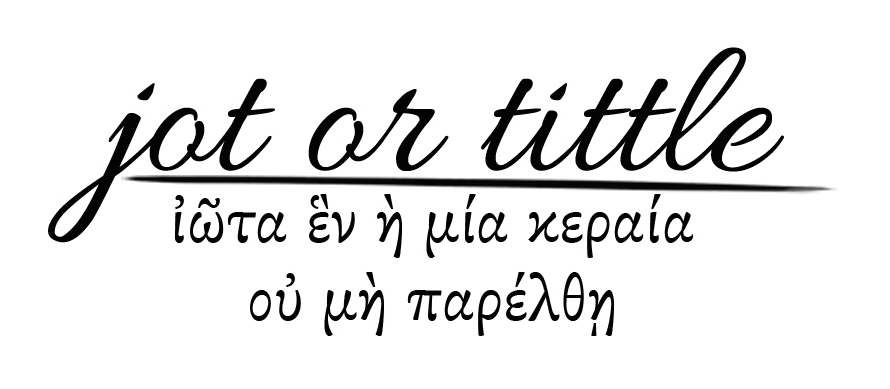The Lord, the Lord
This poem is my first attempt at hymnary. Theoretically, you could sing it to a number of tunes. I personally prefer that of “Auld Lang Syne,” but I have some misgivings about the appropriateness of the tune to the content. I’d love for it to have a tune of its own, but that is not my skill set.
The inspiration for this came from a sermon by my pastor, Matt Troupe, at Free Grace church, in which he addressed the wrath of God in the Passover narrative. I had preached a sermon two weeks earlier that covered some similar ground, so much of this was already on my mind.
My goal with the poem was to explore the way that God’s love and wrath coexist in the gospel story. God’s declaration of his own name and character in Exodus 34:6-7 is a telling example of this: it reveals a God who is merciful and faithful but who will not excuse sin, which is both offensive to him and destructive to us.
The story of Scripture is a story of how God resolved this dilemma, displaying his love for the world while also exercising his wrath toward sin. The wrathful and loving God of the Old Testament is not a different one than the wrathful and loving God of the New Testament. The only difference is that the mystery of the gospel that was concealed in the Old Testament is revealed in the New Testament: that the transcendent God whose holy presence means death to sinners became imminent in the man Jesus Christ and took sin upon his shoulders for us on the cross. Wrath and love are not separated by the half-title page between Malachi and Matthew. They meet and fulfill one another at the cross of Jesus Christ.
That a good God cannot ignore sin is not simply a theoretical or philosophical claim. Few who have suffered deeply in this world could deny that there is real evil and that evil must be dealt with. The temptation I have sometimes felt to think that a loving God could not be wrathful is, I think, a symptom of my privilege living in the first world, sheltered from so many of the consequences of that evil. But the good news is that, from the creation of the world, God had a purpose to love his people while punishing and destroying their sin.
I set out to write this as a hymn. The four-beat, three-beat pattern with an a-b-a-b rhyme scheme is common in hymns (e.g., “Amazing Grace”), and it seemed like a good place to start.
The first draft was much shorter, comprising a version of the second, fourth, and part of the fifth stanzas. I felt after writing it that there was more to explore and expound and that a good song would be longer in any case. I spent several weeks thinking about how to add to it. The allusion to Exodus 34 came quickly, but it took a bit longer to compose a version of the third stanza that I was happy with.
As often happens to me, I wrote a lot of backward sentences that were ambiguous and weird in the first drafts. Katy helped me identify and fix some of the problems. I don’t think the result is exactly contemporary, and it’s maybe not as accessible as I set out for it to be, but I hope it has some of the better qualities of a classic hymn that communicates the truth of Scripture in a memorable and heart-cementing way.
Other Poems
-
2021
- Aug 15, 2021 The Lord, the Lord
- Feb 6, 2021 What Paul Said to the Corinthians
-
2020
- Aug 8, 2020 For My Dog
-
2019
- Nov 8, 2019 because
- Nov 1, 2019 When I Say It
- Oct 22, 2019 What I'm Feeling
- Jun 27, 2019 Rushing Light
- Jun 20, 2019 Genesis 37:25
- Jun 7, 2019 At Thirty
- Mar 4, 2019 The End of Wisdom
- Feb 25, 2019 With Styled Words
- Feb 18, 2019 Stargazing at Hartley Springs

